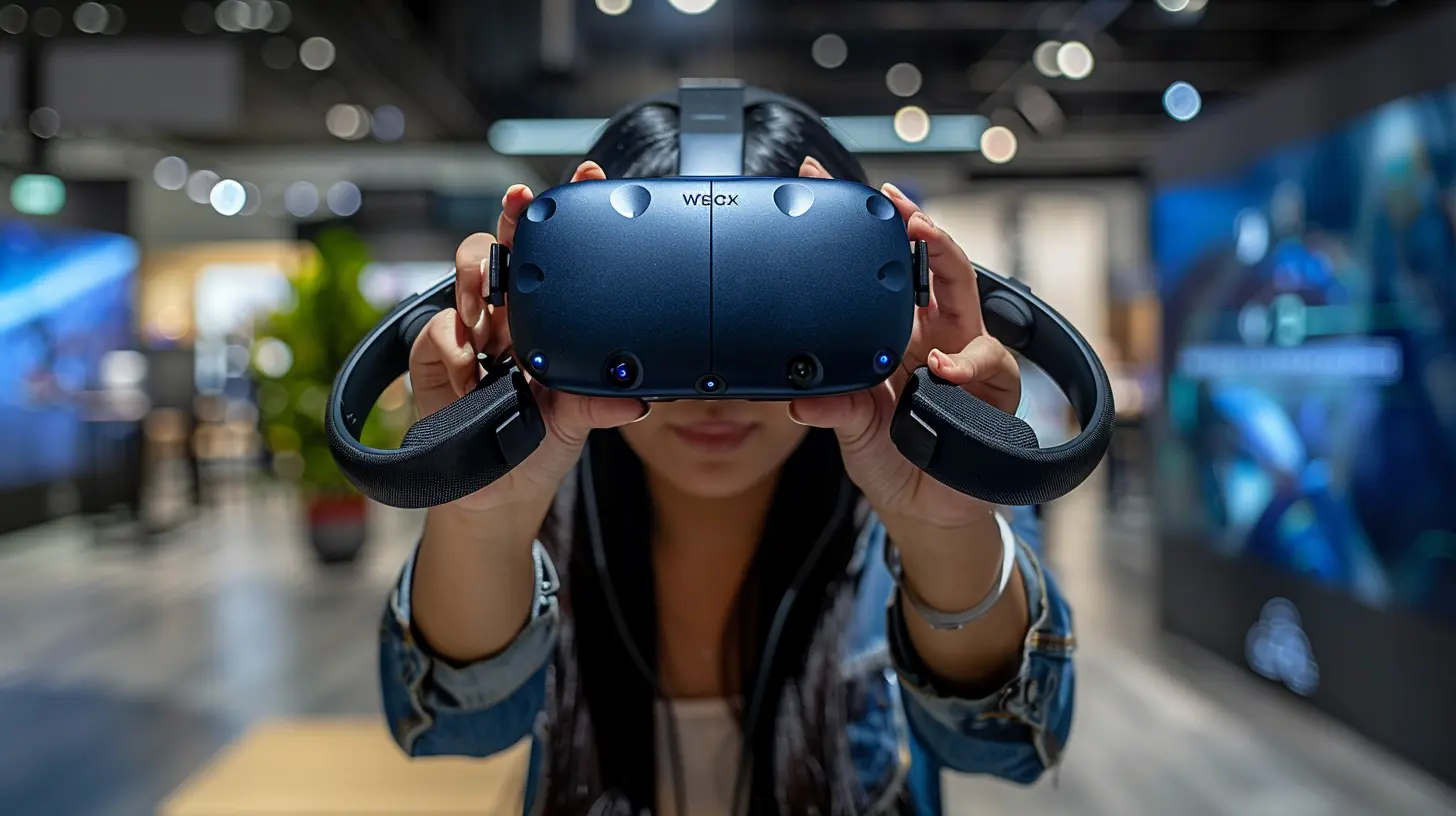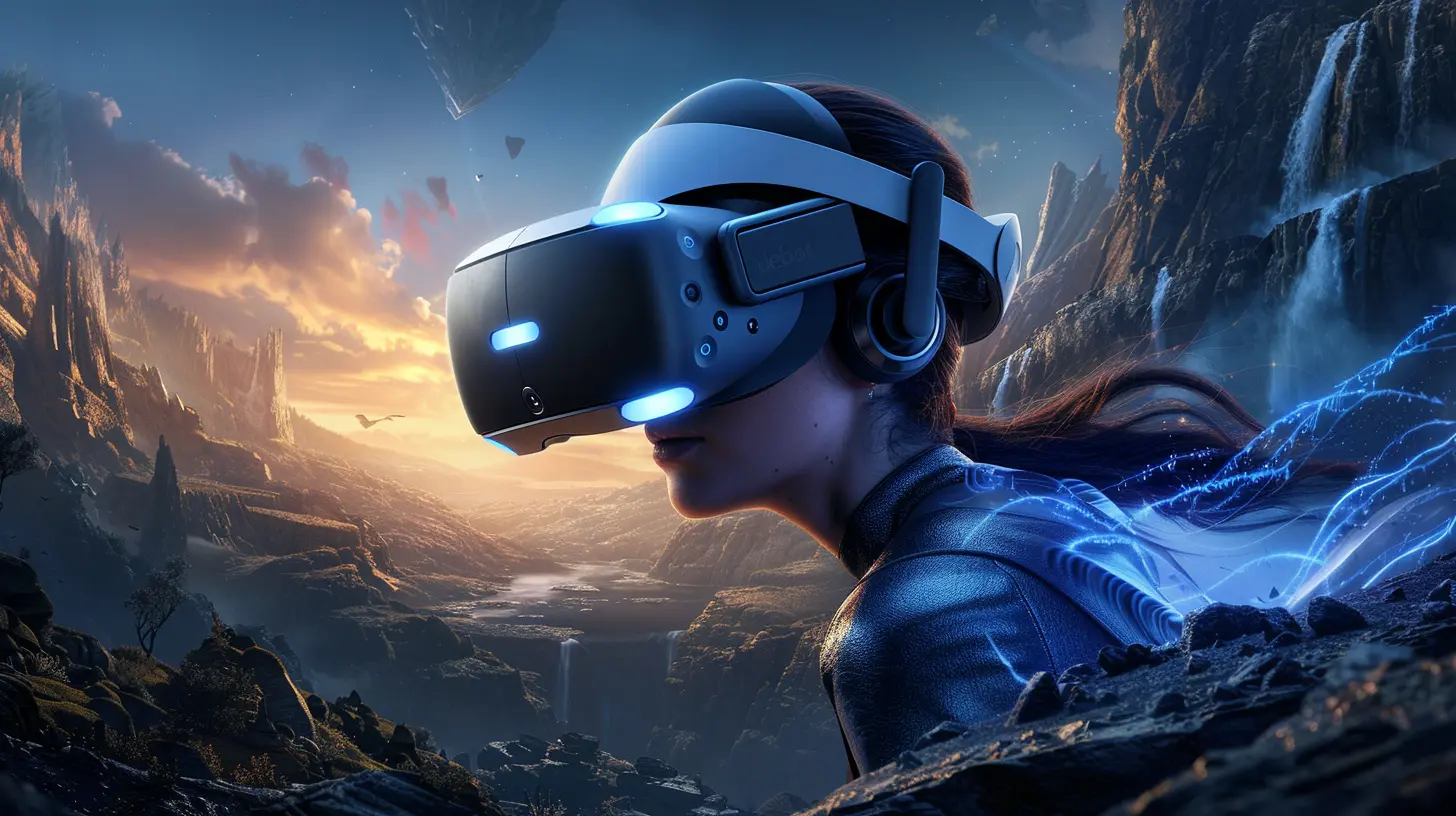How Console VR Experiences Compare to PC VR Gaming
14 April 2025
Virtual Reality (VR) has completely reshaped the way we experience games. It’s like stepping through the screen and entering a whole new dimension of gaming—one where you’re not just playing but living the action. But when choosing between console VR and PC VR, things can get a little tricky, right? Each has its own strengths, quirks, and limitations.
Whether you’re imagining yourself slicing through blocks in Beat Saber, dodging bullets in SUPERHOT VR, or just appreciating serene VR art, the choice between console and PC VR can deeply impact your experience. So, let’s dive into the thick of it and break everything down. By the end of this, you’ll have a much clearer idea of where each platform shines and where it doesn’t.
The Basics: What Exactly Are Console VR and PC VR?
Before we get into the nitty-gritty, let’s quickly outline what we mean. Console VR refers to virtual reality systems designed for gaming consoles, like the PlayStation VR (PS VR) with a PlayStation 4 or 5. On the other hand, PC VR involves using a VR headset that’s tethered to a gaming PC, such as the Meta Quest 2 (when connected to a PC) or Valve Index.While the concept of VR remains the same—immersing you into a fully interactive 3D world—the way these setups achieve this is entirely different.
Hardware: Power and Performance Comparison
When it comes to hardware, PC VR generally takes the lead. Why? Because gaming PCs are like sports cars compared to the minivans that are consoles. They’ve got beefy processors, high-end graphics cards, and the ability to support cutting-edge VR headsets with jaw-dropping fidelity.For example, the Valve Index offers a 144Hz refresh rate and a field of view that feels like you’ve got your head inside a planetarium. In contrast, the PlayStation VR (original) has a standard 90Hz refresh rate and lower resolution. It’s like comparing a 4K Blu-ray to a standard DVD—it’s not bad, but you can tell the difference.
That said, console VR is much more consistent. Developers optimize games specifically for the console, so you won't need to tweak settings or worry about whether your graphics card just got outdated yesterday. For casual gamers or those who don’t want to fuss over performance, this consistency can be a huge win.
Price: Bang for Your Buck
Let’s talk about the elephant in the room—money. It’s no secret that PC VR can be heckin’ expensive. First, there’s the cost of building or buying a powerful gaming PC (which can run upwards of $1,000), and then you’ve got to pick up a VR headset, which isn’t cheap either. A top-tier setup like the Valve Index or HTC Vive can cost you an additional $500–$1,000.Console VR, on the other hand, is much more budget-friendly. If you already own a PlayStation console, the PS VR2, for example, is a plug-and-play system, and the total cost is significantly lower than setting up a VR-enabled gaming PC. For many gamers, that lower entry point makes console VR a no-brainer.
But hey, you get what you pay for. If you’re a hardcore gamer who wants the best of the best, the higher investment in PC VR might feel worth it.
Ease of Use: Plug-And-Play or Tech Tinkering?
Here’s the thing: console VR is stupid simple to set up. You plug it in, follow a few on-screen prompts, and you’re diving headfirst into your VR world. No fiddling with graphics settings, no driver updates, no "why is nothing working?" moments. It just works.PC VR, though? That’s a whole different story. While platforms like SteamVR and Oculus software have made the process easier, there's still a learning curve. From ensuring your PC has the right specs to troubleshooting USB connections and sensor placements, PC VR requires a bit of patience and a knack for tech.
If you’re the type who loves customization and tweaking every little detail (or you enjoy the adventure of “Googling solutions”), you might not mind. But if you want something fast and seamless, console VR is going to be much more appealing.
Game Library: Who’s Got the Better Collection?
Here’s where things get a little tricky, depending on what you want out of your VR experience. PC VR has a massive library of games and experiences, thanks to platforms like SteamVR and the Meta (formerly Oculus) ecosystem. From indie gems to AAA titles, there’s something for everyone. Plus, let’s not forget that you can mod a lot of PC VR games. Ever wanted to turn Skyrim VR into a hyper-realistic dragon-slaying adventure? With a PC, you can.Console VR, on the other hand, doesn’t have the same breadth. However, what it lacks in quantity, it makes up for in quality. Sony, for example, focuses on exclusive, polished VR experiences like Astro Bot: Rescue Mission and Horizon: Call of the Mountain. These games are designed specifically for console VR hardware, so they tend to feel more refined.
So, it boils down to this: if you want variety and mods, go PC. If you want exclusives and polished titles, console VR’s got you covered.
Mobility: Tethered vs. Standalone Options
In terms of movement, both setups can feel a bit “tied down” (literally). Traditional PC VR headsets like the Valve Index or HTC Vive require cables that connect to the PC. While this gives you amazing performance, it can also feel like you’re tethered to a wall. Wireless adapters exist, but they’re an additional cost.Console VR also tends to be limited by physical tethers. Even with the improved PS VR2, you’ll still be dealing with a cord. However, standalone headsets like the Meta Quest 2 are blurring the line. They can function as untethered standalone systems but also connect to PCs for more advanced gaming.
If freedom of movement is a priority, standalone systems (used with or without a PC) currently lead the pack. Console VR is a bit more constrained in this department—for now.
Social and Multiplayer: Who’s Winning in Connectivity?
Both console and PC VR have solid multiplayer options, but PC VR edges ahead slightly when it comes to community-driven games. Since PC platforms have a larger user base, multiplayer games like VRChat or Rec Room tend to be more populated with players.That said, console VR is much more beginner-friendly for social gaming. Features like PlayStation’s easy party setup make it a great option for connecting with friends. Plus, let’s be real—the couch co-op experience of taking turns on a VR headset isn’t going anywhere.
The Future of VR: Where Are Things Headed?
Both console and PC VR are evolving at a crazy-fast pace. Sony’s PS VR2 is a massive step forward, offering features like eye tracking that rival some PC headsets. Meanwhile, PC VR continues to push the boundaries with new hardware like the Valve Index’s knuckle controllers and innovative hand-tracking.The real game-changer? Cloud gaming. Imagine being able to access high-quality VR experiences without needing a beefy PC or console. Companies like Meta and Nvidia are dipping their toes into this tech, and it could completely level the playing field in the future.
Final Thoughts: Which One’s Right for You?
So, how do console VR experiences compare to PC VR gaming? Honestly, it boils down to what you value in your gaming setup.- Go for PC VR if you’re all about power, customization, and an expansive game library. It’s the dream setup for tech-savvy gamers who want everything VR has to offer.
- Pick console VR if you want an easy, affordable way to jump into virtual reality without getting caught up in settings and specs. It’s perfect for casual gamers or families.
Ultimately, VR is amazing no matter where you play it. The real question is: what kind of VR gamer are you?
all images in this post were generated using AI tools
Category:
Gaming ConsolesAuthor:

Whitman Adams
Discussion
rate this article
6 comments
Violet Harris
Embrace the evolution of gaming—console or PC, each experience offers unique adventures waiting for you!
May 7, 2025 at 3:52 PM

Whitman Adams
Absolutely! Both console and PC VR offer distinct experiences, each with unique advantages that enhance the adventure. Embrace what each platform brings to the table!
Levi Benton
Fascinating comparison! I'm intrigued by how the unique strengths of console VR can create different gaming experiences compared to PC. It makes me wonder how each platform's limitations might inspire creative solutions in game design.
April 25, 2025 at 3:05 AM

Whitman Adams
Thank you! It's true that each platform's strengths and limitations can lead to innovative design choices, shaping unique experiences in VR gaming. I'm glad you found the comparison intriguing!
Lyla McNeely
While both console and PC VR gaming offer unique experiences, PC VR consistently delivers superior graphics and performance. The flexibility and customization options available on PC make it the clear choice for enthusiasts seeking a more immersive virtual reality adventure.
April 18, 2025 at 3:03 PM

Whitman Adams
While PC VR does provide enhanced graphics and customization, console VR offers accessibility and ease of use, making it appealing for a broader audience. Each platform has its strengths, catering to different preferences in the VR landscape.
Christina Hudson
Console VR offers accessibility and ease of use, while PC VR excels in graphics and performance. Ultimately, choice depends on individual priorities: convenience versus immersion.
April 17, 2025 at 5:10 AM

Whitman Adams
Thank you for your comment! You’ve captured the essence of the debate perfectly—each platform has its strengths, making the choice highly personal based on what gamers value most.
Angela Monroe
Oh, sure! Because who wouldn’t prefer the thrilling experience of waiting for console updates over the endless possibilities of PC VR? Nothing says "immersive gaming" quite like a good ol' fashion buffering screen! Bravo!
April 16, 2025 at 2:59 AM

Whitman Adams
Thank you for your perspective! While both platforms have their merits, the experience ultimately depends on personal preferences and priorities in gaming.
Cynthia Turner
Console VR is like riding a unicycle in a circus—fun but a bit wobbly! Meanwhile, PC VR feels like zooming through a futuristic city on a hoverboard. Both have their charm, but one definitely brings more snacks to the party!
April 14, 2025 at 2:58 AM

Whitman Adams
Great analogy! Console VR offers a unique and accessible experience, while PC VR delivers more power and immersion. Both have their merits, much like different rides at a carnival!




